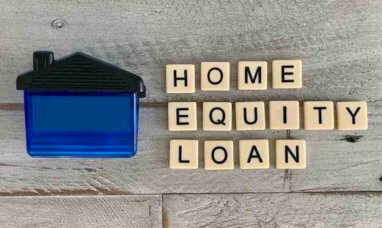Is it really worth the effort to shop around for the best mortgage rate?
After all, most of the offers you get are in the same ballpark. Does a half a point difference in interest rate really matter that much?
Well, on a $350,000 30-year loan, you can save over $35,700 just by getting a loan that is 0.5% cheaper! Put in perspective, it may be worth the extra work of doing your homework.
But how do you find the best mortgage rate for you? Let’s find out!
Here’s How to Find the Best Mortgage Rate
Whether you’re looking for the best jumbo mortgage rates or just some normal mortgage rates, you have to shop around.
In Canada, you should check the best mortgage rates in Canada (CIBC). In New Zealand, you might see a high mortgage priority amount on the paperwork. Don’t let that scare you. It’s not the actual amount you’re borrowing and just serves to protect the bank.
Talk to at least three lenders and see what they can offer you. If they are all bunched around the same terms, you can feel confident that you’re getting a solid deal.
However, if one of the offers is suspiciously low (or high), keep digging to see what’s going on there.
What Credit Score Gets You the Best Mortgage Rates?
Borrowers with high credit scores will enjoy the lowest interest rates. If your score is lower than 700, you may want to work at raising your score before applying for a mortgage — especially if you’re only a few points away.
If you absolutely need to get a mortgage immediately, you should do extra research to find the best mortgage rates for borrowers with poor credit.
But won’t all this shopping around bring down your credit score?
This is a concern many people have. However, the system is built to allow you to shop around. As long as you apply for the same type of loan within a certain period of time (usually a couple of weeks), the inquiry only counts as one hit on your report.
Types of Mortgage Rates
Another thing to keep in mind is that not all mortgage rates are created equal. There are typically two types of rates that a lender will offer you — fixed or ARM.
A fixed mortgage rate remains the same throughout the life of your loan. It tends to be a little higher than an ARM, but you get the security of always knowing what your mortgage payment will be.
An ARM, or Adjustable Rate Mortgage, adjusts with market conditions as the name suggests. Many begin as a low fixed rate for a set number of years and then begin to automatically vary with market conditions.
You may pay less if interest rates drop, but you can also pay considerably more if interest rates skyrocket. The best variable mortgage rates are often so low they seem almost too good to be true.
In general, you should choose a fixed rate if you plan to stay in the home for a long time.
However, an ARM may be beneficial if you think you’ll be moving again before the fixed period is up (or plan to pay off the loan early). Otherwise, you’ll have to be prepared for a considerable difference in your monthly payment.
You might also score a killer deal with a Standard Variable Rate mortgage. This is a mortgage that starts with a ridiculously low rate and then defaults to the lender’s standard variable rate after a certain period of time. Even the best SVR mortgage rates are pretty high, so be careful if you go this route.
Should You Pay Points?
An interesting way to lower your interest rate is to buy points. One point is equal to 1% of your mortgage and usually reduces your interest rate by 0.25%.
To decide if you should pay points, figure out your break-even point. In other words, when you finally save enough on interest to justify paying out the upfront sum.
In most cases, this tends to be about 7-9 years out. If you don’t plan to be in the house that long, it may not make sense for you to pay points. Make sure to do the math (or talk to someone who can help you) to decide for your specific case.
What Are Closing Costs?
Closing costs are the various fees charged by lenders and other third parties in your real estate transaction. They include:
-
-
- Loan origination fees
- Underwriting fees
- Appraisal fees
- Title insurance
- Attorney fees
-
Points are also considered a closing cost should you decide to pay them. In general, you’ll have to pay about 3% of the home’s purchase price in closing costs. However, different lenders will charge different fees, so this is another area where shopping around can help you save money.
Are You Eligible for a First-Time Home Buyer Program?
Many states have generous programs to help first-time home buyers purchase a home. You can get breaks on your interest rate, down payment assistance, and other benefits through these programs. Some are limited to geographical areas, and others are limited to people in certain professions.
Even if you’ve purchased a home in the past, do your homework. Some programs consider you a first-time home buyer if you haven’t purchased a home within a certain number of years.
How Big Should Your Down Payment Be?
Down payment size is very much dependent on your situation. Some programs will allow you to qualify for a loan with 0% down. Others have low down payments of 3 or 3.5%.
However, going that low isn’t always beneficial if you’re able to pay more. Just take a look at the best 5-year fixed-rate mortgages with 85% LTV (Loan-to-Value). By putting down 15%, you can save considerably in upfront costs and over the life of the loan.
Bottom Line
Do your homework and shop around. If you don’t understand a mortgage term, always ask. Not understanding a particular cost (or how to reduce it) could cost you thousands of dollars over the life of the loan.
Featured Image: Pexels








